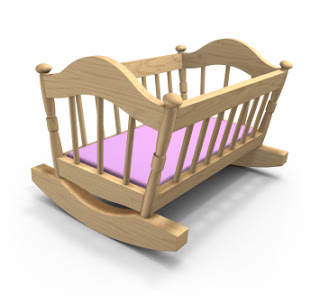Does Child Loss Destroy a Marriage?

Source That which does not kill us makes us stronger.~ Friedrich Neitzsche
A reader writes: I think we need to seek out whatever help we can to be able to balance reality against our fears . . .When we lost an infant to SIDS some time ago, the one thing that really convinced me to get help was being told that many marriages end after the loss of a child, since the couple's grief is different and they find it harder to communicate.
My response: My friend, I agree completely with your statement about seeking help and balancing reality against our fears, and I'm so pleased to know that you followed your own advice. Nevertheless, as a grief counselor, and as a wife and mother who several years ago experienced the unexpected death of our own baby, I feel a need to respond.
Many bereaved parents have been told (or have come to believe) exactly what you were told, that “many marriages end after the loss of a child." I am happy to report that this statement simply is not true. As a matter of fact, according to respected grief expert and noted author Harold Ivan Smith, research indicates that only 6% of marriages fail following the death of a child; the myth is 75% or higher. (Statement by Harold Ivan Smith during his seminar, UnderRecognized Grief, Phoenix AZ, on March 14, 2008). Dr. Smith went on to encourage those of us in the field of grief and bereavement counseling to do all we can to help debunk this myth.
One thing we can do is to help couples better understand how husbands and wives may differ in the ways they experience and express their grief. See, for example, my article, Understanding Different Mourning Patterns in Your Family. (For an in-depth look at the many different patterns of grieving styles and the ways grief can be influenced, but not determined, by gender, see Grieving Beyond Gender: Understanding the Ways Men and Women Mourn by Kenneth J. Doka and Terry L. Martin.)
Obviously an event as catastrophic as the death of a child can put a terrible strain on a marriage, and it certainly won't make a bad marriage any better ~ but there are steps both parents can take to address their individual needs in grief while preserving and strengthening their commitment to each other.
I invite you to read the following articles:
Does Loss of a Child Really Destroy Marriages? by Kimberly Pryor
Growing a Strong Marriage After The Loss of a Child by Margaret Brownley
You might also be interested in the upcoming Webinar offered by The Compassionate Friends, Seven Dos and Don'ts For Staying Connected as a Couple During Grief. The program is free, and will be presented by Chandrama Anderson, Licensed Marriage and Family Therapist on Friday, August 10, 2012, from 8:00 PM to 9:00 PM Eastern Daylight Time. Space is limited, but you can reserve your place by registering here: https://www2.gotomeeting.com/register/454128634
I can also tell you that, when our baby David died just three days after he was born, following what we thought was a normal pregnancy and delivery, we were totally devastated, and the world as we had known it completely fell apart. My husband and I were also very young, and fairly new in our two-year-old marriage. But I can tell you from my own experience that learning to cope with this unexpected crisis in our lives only made our marriage stronger. We “grew up” very quickly afterward, maturing both as individuals and as a couple ~ and I can honestly say that today, nearly a half-century later, I am absolutely convinced that what I learned from our baby’s death was a major factor in my eventual decision to work in the field of death, dying and bereavement. In the end, this catastrophic loss became for us one of life's most valuable lessons: It's not what happens to us, but how we react to it that matters.
I wouldn't wish this unspeakable loss on anyone, but bereaved parents deserve to know that the death of a child doesn't necessarily foretell the death of their marriage ~ and if they are willing to reach out for all the information, comfort and support available to them, it could even draw them closer.
© by Marty Tousley, CNS-BC, FT, DCC


Comments